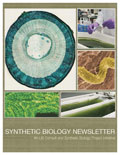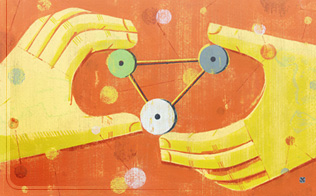Project news
November 29, 2010
Inaugural Synthetic Biology Newsletter Release

In This Issue
I. Synthetic biology and the bio-based economy
Who would ever believe it possible that synthetic biology would make cars drive on renewable diesel and jets fly while reducing greenhouse gas emissions? Or that synthetic biology helps to replace petroleum based products by sugar based counterparts? Oh, and did you know that frogs set the example for a super efficient foam that captures energy and removes excess carbon dioxide from the air? Read more about synthetic biology and about Amyris, one synthetic biology company that is seriously and ambitiously paving the way for a bio-based economy as our glimmering future.
II. Synthia’s (not so) revolutionary character
Do we need to start worrying about potential risks for our health and security? Is synthetic biology helping us to create artificial life? Or is our first self-replicating synthetic bacterial cell ‘just the replacement of one of the motors (of life)’, as the Vatican and other institutions believe? Meanwhile, US President Obama thinks it is time for his bioethics commission to start answering some serious questions. How can the US ‘reap the benefits of this developing field of science while identifying ethical boundaries and minimizing risks?’
III. Society’s response to synthetic biology
While synthetic biology is growing as a field of science, international civil society organizations rely on their 1990s genetic engineering strategy. They focus on risks and call for a moratorium and stricter regulation. Meanwhile, scientists and public policy authorities seem to have learned their GMO lessons. The success or a failure of a potentially controversial technology, depends on the way the public perceives it. So, in Europe, public debates are blooming.
IV. Radical biology
Stuff for our hardcore science readers…Learn how bio-engineers are working on very radical concepts of biological systems; concepts that involve the fundamental principles of genetics and cellular mechanisms.
Download the publication here.
